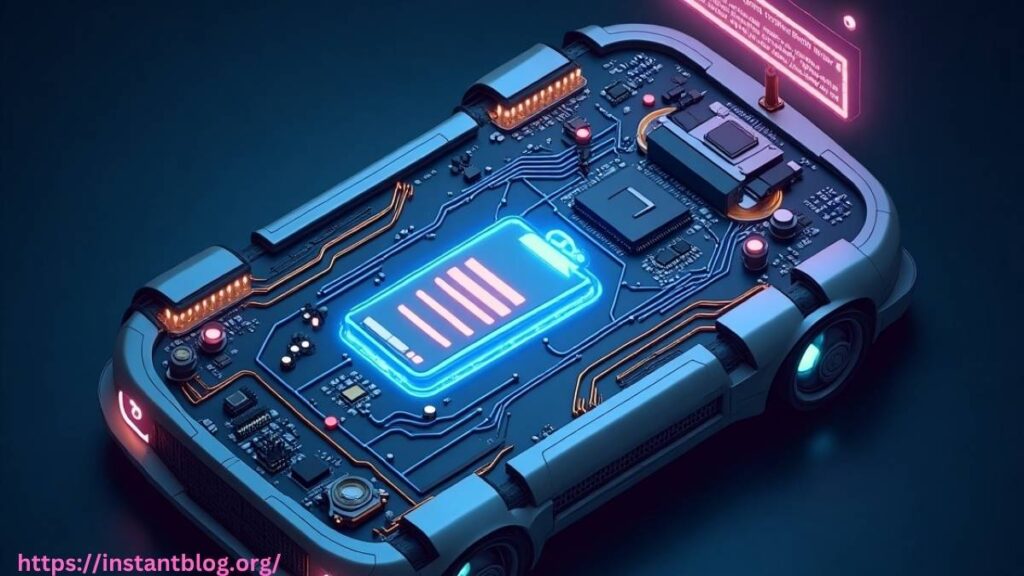Introduction:
If your Android device battery is draining faster than expected, Android System Intelligence might be the cause. Essentially, this smart background service powers features like app predictions and Live Caption. However, it sometimes consumes more power than it should. In this article, we’ll break down what Android System Intelligence is, why it drains battery, and most importantly, how you can fix it without losing key smart features. Along with this, you can also read about smart features like chrome extensions 2025.
What Is Android System Intelligence?
Android System Intelligence (ASI) is a background service introduced by Google to enhance your phone’s ability to personalize itself. It powers features like:
Live Caption
Smart Text Selection
App predictions
Clipboard suggestions
Context-aware actions in Google Assistant
It works by analyzing how you use your phone and suggesting relevant actions based on your behavior — kind of like your digital sidekick.
How It Might Be Causing Battery Drain
Android System Intelligence Battery Drain Explained
While Android System Intelligence is useful, it’s been associated with performance and battery issues. Typically, these issues occur when:
It collects excessive usage data
Smart predictions run in the background too often
It interacts poorly with other apps
It’s buggy after OS updates
As a result, you may notice faster battery drain, frequent wakeups, or even overheating.
Check If ASI Is the Culprit
To determine if ASI is draining your battery:
- Go to Settings > Battery > Battery Usage
- Tap the 3-dot menu > Show full device usage
- Look for “Android System Intelligence”
If so, and it’s using over 10% of your battery, it’s time to make changes.
Reduce Android System Intelligence Battery Drain
Let’s explore how to reduce drain without disabling smart features entirely.
Adjusting System Settings
First, go to Settings > Apps > Android System Intelligence > Battery, and choose Restricted.
Next, disable unused features like Smart Clipboard or App Predictions.
Additionally, ensure that your phone software is up to date. In many cases, firmware patches help with power optimization.
Do You Need ASI Enabled?
Some users disable ASI altogether to save power. However, if you use:
Google Assistant routines
Smart Replies in notifications
Live Caption
…then disabling ASI may impact your experience. Consider disabling only selected features instead of removing ASI completely.
Smart Optimization Techniques
Use Built-in Battery Tools
Here are settings that help battery without losing core functionality:
Adaptive Battery: Uses AI to limit rarely-used apps.
Scheduled Battery Saver: Turn it on during sleep or downtime.
Limit location usage: Disable GPS for ASI unless required.
Developer tip: Turn off ambient display and motion detection if not used.
Together, these settings help manage ASI’s background behavior while keeping the system smart.
Phone-Specific Solutions (Samsung, Pixel, etc.)
Samsung Users
Samsung’s One UI adds additional layers over Android. Therefore, it’s important to use the native Battery Optimization tools.
Pixel Users
Pixel users often benefit from deeper Google integration. Even so, if you’re facing battery drain, you can still restrict background activity or disable clipboard suggestions.
OnePlus/Xiaomi
These brands sometimes use aggressive RAM and battery management. Hence, using “Battery Optimization” settings and avoiding third-party task killers is recommended.
Real User Case Studies: What Tech Users Say
Pixel 7 Owner’s Reddit Report
“My phone started overheating. ASI was using 13% of the battery daily. Once I turned off clipboard suggestions, battery life increased dramatically.”
Blogger Review on Midrange Devices
A blogger on AndroidAuthority.com reviewed Android 13 on a Moto G and found ASI was consuming 10–15% battery on idle:
“Mid-range phones can’t always handle real-time suggestions. I recommend limiting context-based learning on older models.”
Samsung Galaxy Feedback
A Galaxy S22 Ultra user found disabling Smart Suggestions improved screen-on time by 1 hour:
“Didn’t even realize ASI was doing so much until I checked usage stats.”
Clearly, even premium devices can suffer from ASI overuse. Fortunately, disabling non-critical features provides quick relief.
Advanced Troubleshooting for Power Users
Use BetterBatteryStats App
This app allows advanced tracking of wakelocks and background apps. As such, it’s ideal for identifying ASI misbehavior.
Monitor Activity via ADB
Using ADB, developers can view battery stats in real-time. For example, the command below tracks Android System Intelligence:
adb shell dumpsys batterystats | grep android.ext.services
Try Safe Mode
Safe Mode disables all third-party apps. If the issue stops in this mode, a conflicting app may be triggering ASI.
How Android System Intelligence Has Evolved
Android 11: The Early Days
ASI powered Smart Replies and app suggestions with minimal impact.
Android 12: Smarter and Heavier
With added features like Live Caption and translation, ASI became more resource-heavy.
Android 13: Stability and Efficiency
Thankfully, ASI improved efficiency on most devices.
Android 14: Context-Aware but Power Hungry
Despite AI improvements, many users still report battery issues after OS updates.
Conclusion
To sum up, Android System Intelligence battery drain is common but not unavoidable. By following the steps above, you can reduce its battery impact without sacrificing helpful features. Ultimately, your goal should be balance — keep what you need, and disable the rest.
Read More:-👉 tech related articles for better insights.
FAQs
Q1: Can I uninstall Android System Intelligence?
No. It’s a core system app. But you can restrict or disable it without rooting your phone.
Q2: Will disabling ASI break other apps?
Possibly. Features like Smart Reply or Live Caption may stop working correctly.
Q3: Is ASI the same on all Android phones?
No. Each manufacturer customizes Android differently. ASI on Pixel is tightly integrated; on Samsung or Xiaomi, it’s more modular.
Q4: Does factory resetting remove ASI battery drain?
Sometimes. It can fix background errors but ASI will eventually resume learning patterns unless restricted.
Q5: Are there safer alternatives to disabling ASI?
Yes. Use “Restricted” battery settings or turn off specific features like Smart Clipboard.



